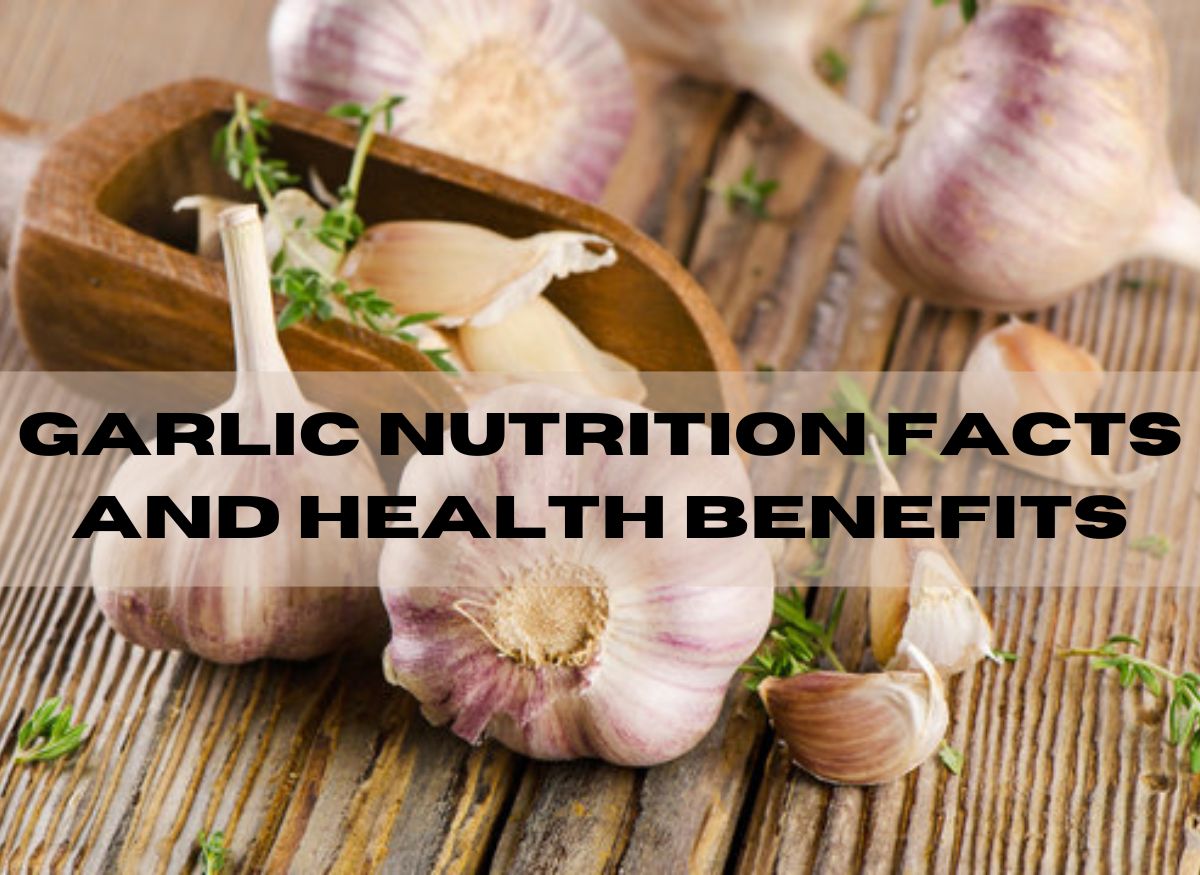
Garlic Nutrition Facts and Health Benefits
Garlic is a member of the Allium family. It is nearly similar to onions, shallots, and leeks. Most people are eagerly searching to know about Garlic Nutrition Facts and Health Benefits. In this article, you get detailed information about Garlic Nutrition Facts and Health Benefits.
Garlic Nutrition Facts and Health Benefits
In this article, you get detailed information about Garlic Nutrition Facts and Health Benefits.
1. Garlic contains compounds with powerful medicinal properties
In One Tuber, there are about 10 to 20 cloves. It has grown in many parts of the world. Garlic is a popular ingredient in cooking because of its strong aroma and delicious taste.
However, throughout ancient history, garlic has been used widely for its health-promoting and medicinal properties. Most scientists believe that most of the health benefits of garlic come from sulfur compounds which are produced when garlic is chopped, crushed, or chewed.
Perhaps the best-known compound is allicin. However, allicin is an unstable compound and is only present in fresh garlic for a short time after being cut or crushed.
Other compounds that may be involved in garlic’s health benefits include diallyl disulfide and S-allyl cysteine.
The sulfur compounds which are in garlic get inside the body through the digestive area. They then travel throughout the body and exert their powerful biological effects.
2. Garlic is Nutritious but Low in Calories
Calorie for calorie, garlic is incredibly nutritious.
Garlic is a good source of several nutrients, especially Manganese, Vitamin B6, Vitamin C, Selenium, and Fiber.
Garlic also holds various other nutrients.
3. Garlic Prevents Illnesses Like Colds
The study found that people who took AGE supplements for three months during cold and flu season had less severe symptoms and missed fewer days of school or work.
Other studies suggest that compounds found in garlic may have antiviral properties. In addition to boosting the immune system, they also help prevent viruses from invading and replicating within host cells.
4. Garlic’s active ingredients can help lower blood pressure
According to the World Health Organization, cardiovascular diseases, such as heart attacks and strokes, are responsible for more deaths than most other diseases. High blood pressure is one of the main factors that can cause these diseases. A meta-analysis of studies in 2020 found that garlic supplements lower blood pressure in people with high blood pressure.
Researchers linked this effect to a 16-40% reduction in the risk of cardiovascular events. The analysis found that garlic’s effects are similar to some blood pressure medications but with fewer side effects. It can also relax blood vessels, allowing blood to flow more easily.
5. Garlic improves cholesterol levels and reduces the risk of heart disease
A reliable 2018 research review suggests that garlic may lower total and LDL (bad) cholesterol. Found that taking garlic supplements for more than two months could lower LDL by up to 10%. Researchers noticed this effect in people with slightly elevated cholesterol levels. Research also suggests that garlic does not affect HDL (good) cholesterol.
6. Garlic contains antioxidants that help prevent Alzheimer’s and dementia
Research suggests that these antioxidants may significantly reduce oxidative stress and lower the risk of related diseases such as Alzheimer’s disease, the most common form of dementia.
Animal studies suggest that the allicin found in garlic may also help prevent cognitive decline. Human studies are still needed to fully understand its potential.
Some studies have found that garlic supplements can directly help Alzheimer’s patients.
7. Garlic helps you live longer
Garlic’s potential impact on longevity is essentially impossible to prove in humans. But given that garlic has a positive effect on major risk factors such as blood pressure, it stands to reason that it could help you live longer. The fact that it helps prevent infectious diseases is also important. Such diseases are a common cause of death, especially in the elderly and those with weakened immune systems.
8. Garlic supplements can improve athletic performance
Garlic is one of the earliest “performance-enhancing” substances. Ancient civilizations used garlic to reduce fatigue and improve the work capacity of workers. Ancient Greek Olympic athletes took garlic to improve their performance.
Studies in rodents have shown that garlic improves athletic performance, but there are few studies in humans.
A recent study found that garlic did not improve cyclists’ performance in a 40km time trial. However, exercise-induced oxidative stress and muscle damage may have been reduced.
9. Eating garlic helps detoxify heavy metals in the body
Allicin in garlic may help lower lead levels in the blood and vital organs. It also reduced many clinical symptoms of toxicity, such as headaches and high blood pressure.
Garlic taken three times a day was more effective than D-penicillamine in relieving symptoms.
10. Garlic can improve bone health
Some recent studies have investigated the effects of garlic on bone health, especially in postmenopausal women.
Results of a clinical trial published in 2017 showed that garlic can reduce oxidative stress, which contributes to osteoporosis. Participants took garlic tablets, equivalent to about 2 grams of raw garlic per day. A 2018 study found that taking garlic supplements (1 gram per day) for 12 weeks helped reduce pain in obese or overweight women with osteoarthritis of the knee.




